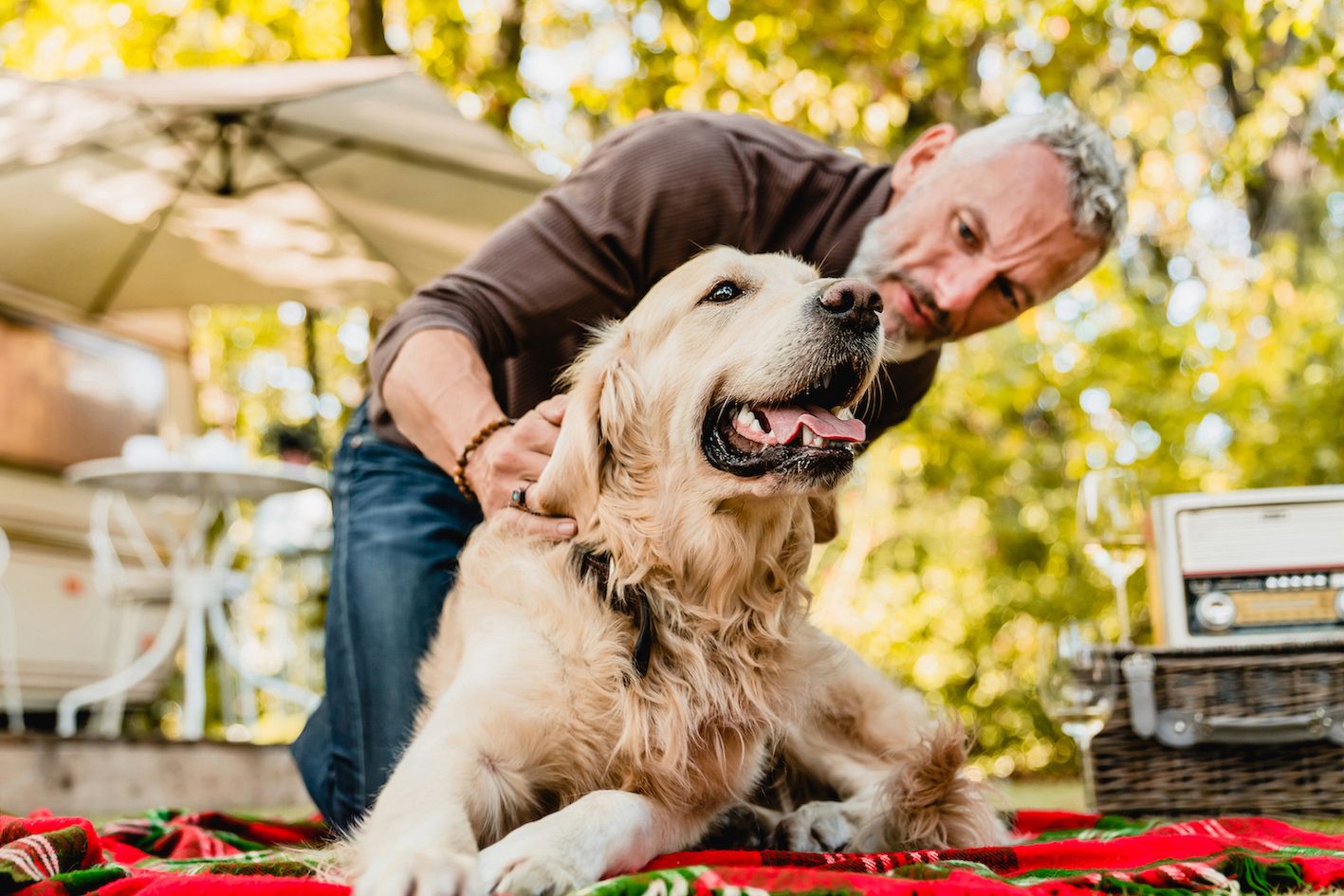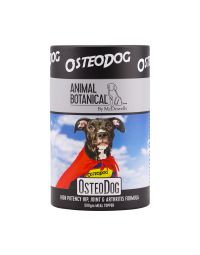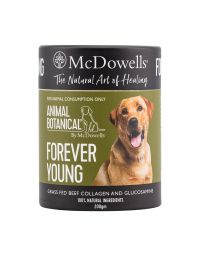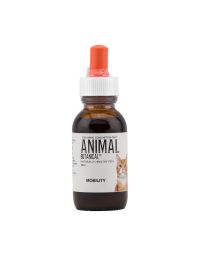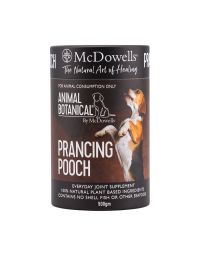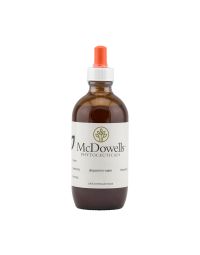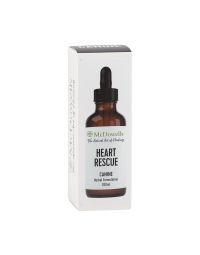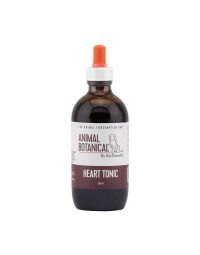If we want our dogs to enjoy long, healthy lives, the foundations must be built early. Just as with humans, there are no magic fixes later in life to undo years of poor nutrition or lack of care. But by laying down strong foundations – with wholesome food, herbal support, movement, and emotional wellbeing – we can give our companions the best chance of thriving into old age.
Dogs are wonderfully adaptable and loyal. They live within the lifestyle we provide them, which means their health journey is very much in our hands. Supporting them naturally at every stage of life helps to prevent problems later, and ensures their senior years are comfortable and full of vitality.
Arthritis and Joint Health
Arthritis in dogs most often presents as osteoarthritis – the gradual wear and tear of joints and bones. This can involve joint degeneration, cartilage loss, bony spurs, or changes in the structure of the bone itself. It’s commonly thought of as “wearing out” from age or hard work, but in reality, multiple factors play a role.
Mineral Balance Matters
From a naturopathic perspective, arthritis is linked not only to joint strain but also to imbalances in mineral metabolism. While calcium is important for bones, it is only part of the picture. Bones rely on a balance of calcium, magnesium, phosphorus, silica, and trace minerals working together. Too much calcium – especially from supplementation or overconsumption of dairy – without balancing minerals like silica can actually create deposits, stiffness, or brittle bones.
Research has shown that chronic inflammation and oxidative stress also play a role in arthritis progression. Diets heavy in processed carbohydrates can promote an acidic internal environment, which encourages the body to leach calcium from bone. By contrast, a diet rich in natural proteins, vegetables, and mineral-rich whole grains helps restore balance.
Helpful foods and herbs for bone health include:
- Millet and linseed, which are naturally high in silica and support bone and ligament strength.
- Turmeric and Boswellia, both supported by evidence for reducing joint inflammation in animals.
Nettle leaf, rich in minerals, which acts as a tonic for connective tissue.
Differentiating Arthritis from Rheumatism
Sometimes joint stiffness in dogs is not purely osteoarthritis but resembles rheumatism – an immune-related irritation of the joint capsules. This often worsens in cold, damp weather, and symptoms may move unpredictably from joint to joint. Unlike arthritis, where pain increases with work, rheumatic stiffness often eases once the dog warms up and moves.
Supporting rheumatic patterns involves both reducing inflammation and strengthening elimination pathways, especially kidney health. Herbal tonics that support the kidneys, liver, and lymphatics can improve resilience and reduce flare-ups.
Incontinence in Older Dogs
Bladder incontinence can appear in senior dogs, especially in spayed females. It often starts subtly – a few drops of urine when excited or barking – and gradually worsens as the bladder sphincter weakens.
Nature offers gentle support here too. Certain herbs, such as:
Couch Grass (Agropyron repens): traditionally used to tone smooth muscle, including bladder sphincters.
Saw Palmetto: supportive for urinary tract and hormonal balance.
Together, they can help restore muscle tone and slow the progression of incontinence, particularly when introduced early.
Eye Health in Senior Dogs
As dogs age, their eyesight often declines, with issues such as cataracts, glaucoma, and lens clouding becoming more common. While dogs adapt remarkably well to vision loss due to their strong sense of smell, eye health is still important for comfort and safety.
Herbal remedies can help maintain healthy eyes and circulation:
Rue, Golden Seal, and Celandine are traditionally used for eye infections, irritations, and early cataracts.
These herbs provide Vitamin A and circulatory support to eye tissue.
When used as a diluted eyewash (always carefully prepared at safe concentrations), they can soothe irritation and support healing.
Using gentle herbal eyewashes preventatively – perhaps monthly – can be part of a routine senior dog care plan.
Hearing and Ear Health
Hearing loss is common in older dogs, though less disruptive to them than it would be to us since their sense of smell remains intact. Still, hearing loss can be a safety issue, particularly around roads.
There are no herbs to restore hearing, but supportive ear care can help prevent secondary problems. Regularly checking for wax buildup, irritation, or fungal infections is important. A traditional vinegar-and-alcohol solution can discourage fungal overgrowth in the ear canal, creating an environment where irritations settle. This should be reapplied after swimming or bathing.
Heart Health in Ageing Dogs
Heart issues in older dogs often show up as shortness of breath, coughing (especially at night), a rounded “pot belly” from fluid retention, or reduced stamina. Many conventional treatments involve strong diuretics, but natural options can complement or support heart function more gently.
Key herbs for canine heart support include:
- Hawthorn (Crataegus spp.): long used for its ability to nourish heart muscle, regulate rhythm, and improve circulation.
- Motherwort (Leonurus cardiaca): supportive for heart tone and calming to the nervous system.
- Celery seed and Juniper: natural diuretics that assist fluid balance.
Evidence supports Hawthorn, in particular, as a safe and effective heart tonic in both humans and animals. Starting such tonics before major symptoms appear may help slow degeneration and support longevity.
A Holistic View of Ageing in Dogs
Caring for an ageing dog requires attention not just to their joints or organs, but to the whole being:
Nutrition: whole foods, mineral-rich grains, fresh meat, and vegetables.
Movement: regular, gentle exercise keeps joints lubricated and minds engaged.
Emotional wellbeing: play, touch, and companionship are vital for senior dogs, just as they are for humans.
